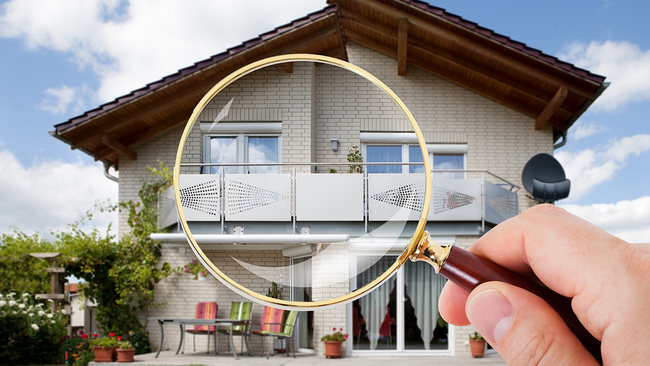4 Home Assessments Outside of a Standard Inspection

“Although mortgage lenders do not generally require it, nearly 80% of people who buy homes that are not newly built opt for an inspection. The main reason is to make sure there are no problems with the structure, roof, heating, plumbing, and electrical systems, among other things,” says Tim Buell, president of the American Society of Home Inspectors (ASHI).
That figure is not surprising. Considering the significant investment you’re making when buying a home; you don’t want to incur any surprise costs because you didn’t take advantage of a home inspection before closing. But keep in mind, a home inspection will not necessarily cover every inch of your new home. How can you be sure you choose the right inspections, tests, and reviews.
Read our article on what to expect in a home inspection, and consider the following services that may also prove beneficial.
Sewer scope
Some home inspectors have the credentials and certifications to complete a sewer scope. Others do not, so that could be a separate exam and fee. Here’s why you should not overlook a sewer scope:
-
If you’re buying an older home, you could be inheriting a sewer system that is failing, which can lead to awful smells and significant damage.
-
If you’re buying a home with lots of trees and foliage on the lot, you could experience tree root invasion, which can lead to backups, clogs, and line breakage.
At a mere few hundred dollar costs, you can ultimately save yourself thousands or even tens of thousands of dollars in the long run.
On average, sewer repairs can cost $5,000. If the problem is in the street, repairs can easily creep up to $20,000 or more.
It’s as simple as hiring an inspector that is certified to scope sewer lines or to hire a professional who does sewer scopes. The test itself is rather simple and does not take long. A long camera will be inserted down your drain and through your pipes until it reaches the city sewer connection. They’re almost always recorded and provided to you so you can see any issues the inspector or sewer professional find.
Radon testing
Radon is an invisible and odorless radioactive gas that can seep out of the ground and enter your house through drains or even cracks in your home’s foundation. It often collects in basements and crawl spaces.
The only way to know if your home has radon is to have a licensed professional conduct a radon test.
If the test comes back showing you have radon in the home, there are simple repairs you can do to reduce the gas. You can
-
Install an airtight cover on your sump pump
-
Cover soil in crawl spaces with polyurethane plastic sheeting
-
Seal concrete or foundation cracks
If radon levels remain high, you have another relatively affordable option. A radon mitigation system can be installed, which involves ventilating your home with PVC piping to draw radon gas up from the soil and out of your house.
Swimming pool inspection
Some buyers assume the home inspection covers the pool, but it’s rare when it does. Even if they offer pool inspections, many home inspectors do not have the required expertise to evaluate a pool. So, it’s important to hire a professional who is licensed to find problems that may accompany your new home’s oasis.
The national average for pool inspections is $150-$200, which is relatively low when you consider the expensive repairs you could incur when purchasing a home with a faulty pool.
In addition to the pool itself, which must be solid in the ground and free of leaks, the equipment that keeps it clean and heated—the pumps, heaters, filters, and sweep—must be operating properly. The electrical equipment and the plumbing also need to be tested. Finally, the inspector should check the decking surfaces surrounding the pool, drains, safety covers and any hardware that secures them.
Pest control
By law, only a licensed pest control operator can inspect for termites, dry rot, fungus, other pests, organisms, or rodents. Pest inspectors will poke around the exterior of the home, including the foundation, windows, roofline, and rafters.
During the inspection, they’ll look for signs of pests including:
-
Rotting
-
Holes
-
Wood damage
-
Leakage
-
Tunneling
-
Mold
-
Decay
The average cost to hire an insect control service averages between $108 and $262 depending on the problem.
If signs point to a rodent or pest issue, your inspector will present an official report with suggested solutions on how to remove the problem and prevent any future issues.
The bottom line
Some home inspectors are licensed and trained to handle all of these additional services and more. Some aren’t.
What’s most important is not to inherit problems when purchasing a new home. Even if it means hiring multiple agencies or professionals, take precautions and invest in your health, safety, and peace of mind by scheduling a home inspection and going the extra mile with a few additional services outside of the inspection. You’ll thank yourself later.




